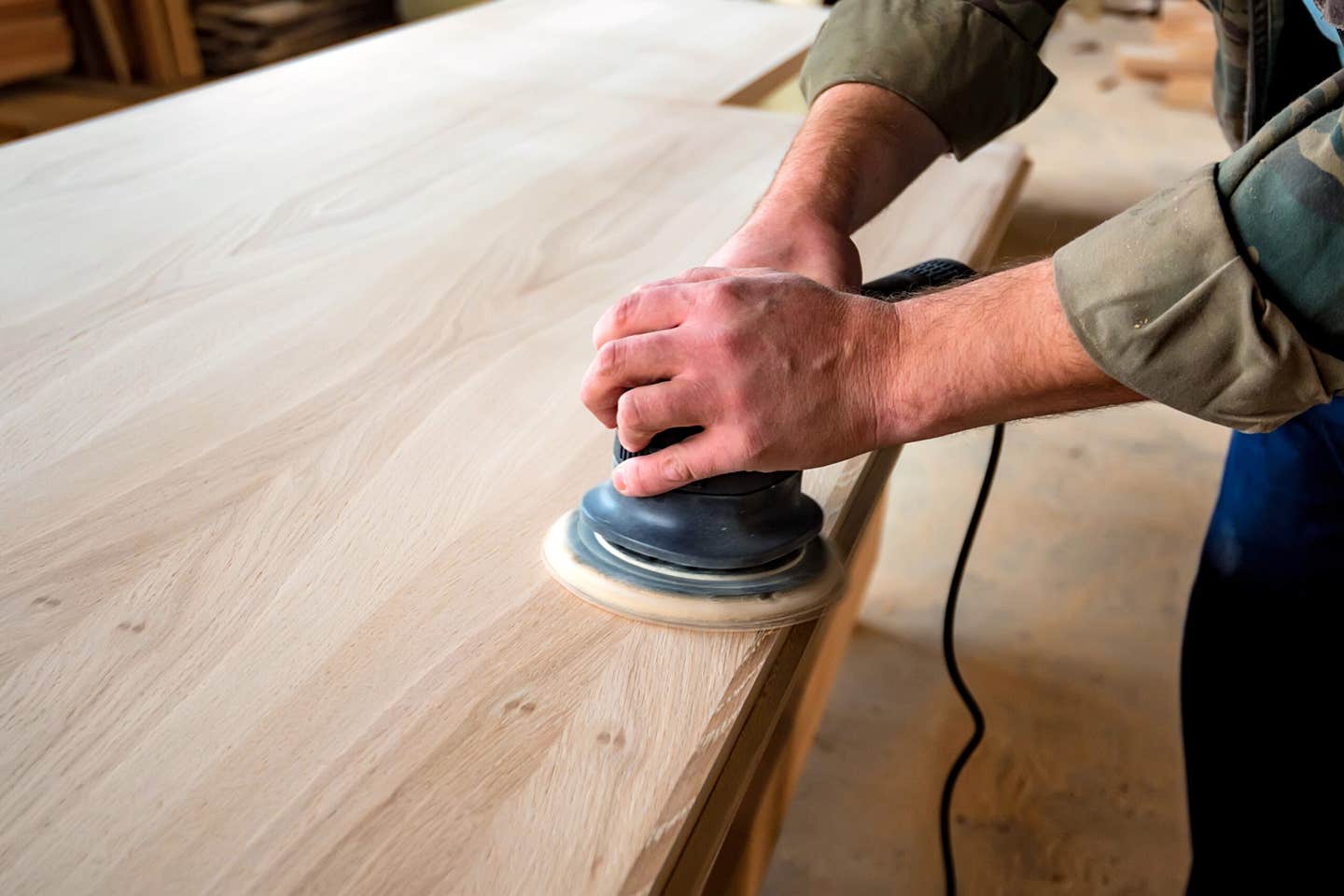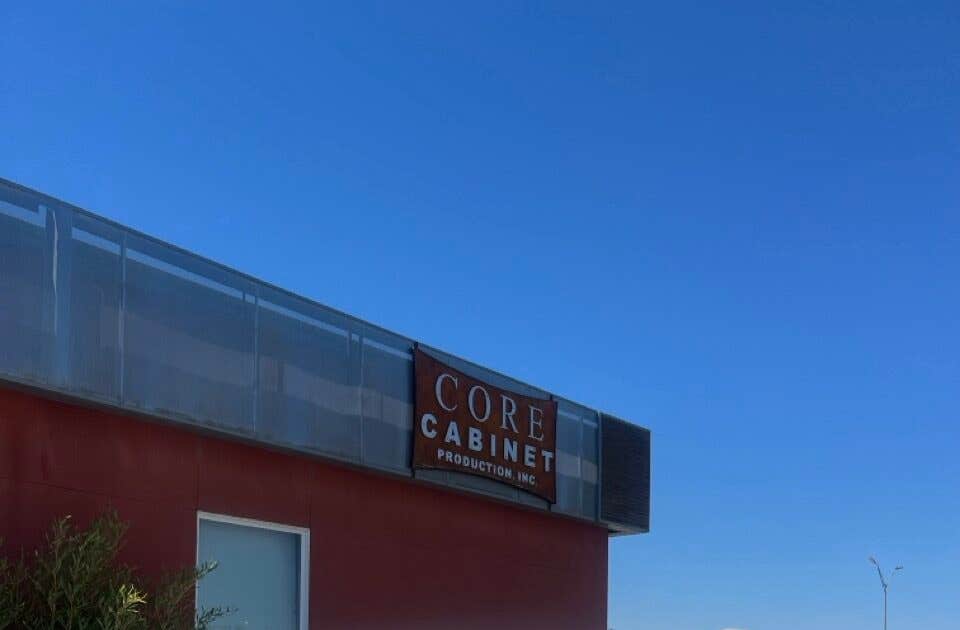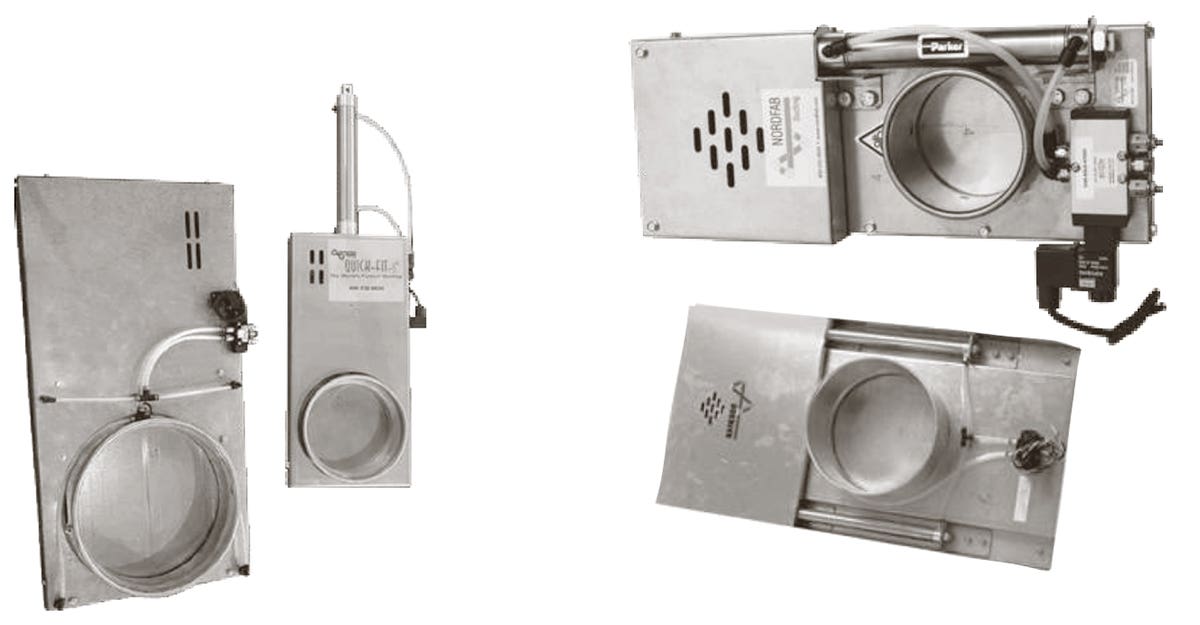Friends till the end
Angel Custom Woodworking in Waterbury, Conn., caters to a diverse clientele seeking home renovations and improvements in a variety of styles and finishes. Rich D’Angelo and Dan Angelicola are the…
Angel Custom Woodworking in Waterbury, Conn., caters to a diverse clientele seeking home renovations and improvements in a variety of styles and finishes. Rich D’Angelo and Dan Angelicola are the owners who split office duties and work alongside their five employees in the shop.
The two friends worked together at the same cabinet shop after high school and, when they were laid off in 1983, they decided to go into business on their own. All of their efforts to keep customers and employees happy through the years have contributed to their success.
“The key to success for us and any business I think is to provide a good product and excellent customer service,” Angelicola says. “We always get letters from customers saying how happy they are with the quality of our service. They think we are very fair. Some may not think that at first, but when the job is done they realize why it cost a little bit more than the guy down the street. It’s not just a product we offer, it’s a service.”
Sharing a dream
The Waterbury natives learned the trade through the school system’s industrial arts program and soon discovered they had many of the same aspirations in the woodworking industry.
Their first shared shop was in the basement of Angelicola’s parents. They moved to their current facility a few years later.
“Our main shop is 2,600 sq. ft. and our assembly area is an additional 3,000 sq. ft. After we purchased the building we put up a side building that we use as a rental property,” D’Angelo says.
Most jobs are in high-end areas of southern Connecticut. The company does not spend money on advertising, nor does it really need to.
“Our jobs are all through word of mouth. We have not spent any money on advertising in the last 33 years because everything comes to us. It’s funny how referrals work. We had gotten one single kitchen job in Ridgefield, Conn., part of Fairfield County, in 2008 and then we were down there working solid in Ridgefield until last year. People seem to like to keep the same cabinetmakers in their circle,” D’Angelo says.
Keeping up
In the early years, customers wanted a contemporary look featuring laminate coverings.
“We did a lot of commercial work when we first started, a lot of work for local hospitals. Then, as time went on, the laminate trend kind of phased out for a period in the early ’90s and we got into more residential architectural millwork,” D’Angelo says.
“That was when there was a big building boom. We would work on new homes that required fancy paneling and trim, wainscoting, coffered ceilings, libraries and more. We did whole packages. We were not doing a lot of kitchens like we do now. It was a lot of trim packages with an occasional kitchen.”
About 95 percent the company’s work is in the residential remodeling market.
“We kind of like it better that way because you’re dealing with the people, getting their input and making sure they get exactly what they want and make sure they know exactly what they’re getting,” Angelicola says. “We make all sorts of prototypes and samples of products for our clients. We know it requires extra legwork, but it’s important to make sure there’s not a problem because most people aren’t visual people so they don’t know what they want.”
“And the residential work seems more rewarding. Commercial work is very competitive where you’re bidding against everyone. It’s a totally different business.”
The partners say that changing with the times has been a key to their longevity.
“We worked in a lot of big houses and that’s how we got our name out. Once a big-name builder would complete a house, they would often have an open house and all of these other builders would call us up and say they had to keep up with so and so, offering us work,” D’Angelo says.
“For the most part our work is traditional, but it still changes from town to town. Contemporary work is coming back a little bit. We did a big home in Ridgefield with all very modern aesthetics that is quite nice,” Angelicola says.
All finishing is outsourced. The most popular finish is white paint, especially for kitchens, usually on soft maple. The partners say the wooden natural look is dying down. If clients request stained or natural finishes, their preferred wood choice is generally cherry.
A family affair
D’Angelo and Angelicola share equal roles managing the business. Usually they work together on projects, but if a particular builder knows one or the other, that person will work on the design while the other manages the shop floor.
“When you’re stuck in the office you wish you were out in the shop and vice versa. That’s the way that goes,” Angelicola says.
The company currently has five full-time employees and a very low turnover rate. The crew includes a father-and-son team. Everyone is cross-trained, but there are certain tasks some employees specialize in. The owners like to call the crew a family.
“When you’re working in a small place, you have to fit in. We’ve had people work here over the years who really didn’t fit in and they didn’t last, but for the most part people fit in here and hang out together outside of work,” Angelicola says.
When there’s a rare opening, it’s been difficult to find a new employee with the necessary skills to keep up with the shop’s seasoned crew.
“Everybody knows everything until you get them in here, then they don’t know half of what they say,” Angelicola says. “But you can’t blame them because they economy is so tough. We don’t hire too much because of the low turnover, but we constantly have people walking in here with applications. But I have to say that lately people haven’t been coming in as often. It might be a sign that times are getting better as far as employment opportunities go.”
The shop can’t afford medical benefits for its employees, but tries to pay well enough so workers can afford them on their own.
“It’s hard to get a plan for a couple of guys, so we try to compensate in other ways. We offer them personal days, sick days and vacation days,” Angelicola says.
The shop features Powermatic table saws, shapers and a drum sander; a William & Hussey molder; a Ritter face frame assembly table; a Kreg pocket-hole machine; a Morso knotcher; Festool sanders and a Shop Fox band saw and oscillating spindle sander.
The owners say they would be interested in a CNC router if their volume of work picks up. But for now, they outsource to nearby shops when the need arises.
Right size for the times
The shop works on about 200 jobs of various sizes per year. The crew will often chip away at a large job for several months while also completing small projects to generate cash flow. The partners are careful about growing the business because it can be a double-edged sword.
“When things are good they’re very good, but when it gets slow it’s hard to justify having all of this equipment. Would we like to grow? Yes. We have the perfect opportunity at this property to have a lot of people working here if the economy turns around,” D’Angelo says.
The business nearly crashed in 2009.
“Things were going really strong, then the recession really started to hit us. We ended up laying a couple of the guys off for our first time. One guy went out on his own and didn’t come back. We called the other guy back and it’s been pretty steady ever since. But it’s always up and down,” D’Angelo says.
“I would say the main problem we face now is the banks. They’re so tough on money with the builders, which slows the projects down. The cash flow isn’t there like it was 10 years ago.”
D’Angelo says competition isn’t much of a problem recently. But during the Great Recession, there was a procession of independent carpenters working out of their vans at prices the shop couldn’t match.
“The builders were doing the same thing. They were trying to save money so they would pay these guys working out of their truck instead of paying us. Then they’d end up calling us back to fix it,” says D’Angelo, who can laugh about it now.
“The best part of running business is being able to come and go,” Angelicola adds. “Paying bills and making money is the most nerve racking. When you’re waiting for payments and you have bills to pay, it can be quite stressful. But we own our homes, own a boat together and go on vacations with our wives who are best friends. Knock on wood, life’s been good so far.”
Contact: Angel Custom Woodworking, 972 N. Main St., Waterbury, CT 06704. Tel: 203-755-1064. www.angelwoodworking.com
This article originally appeared in the September 2014 issue.







